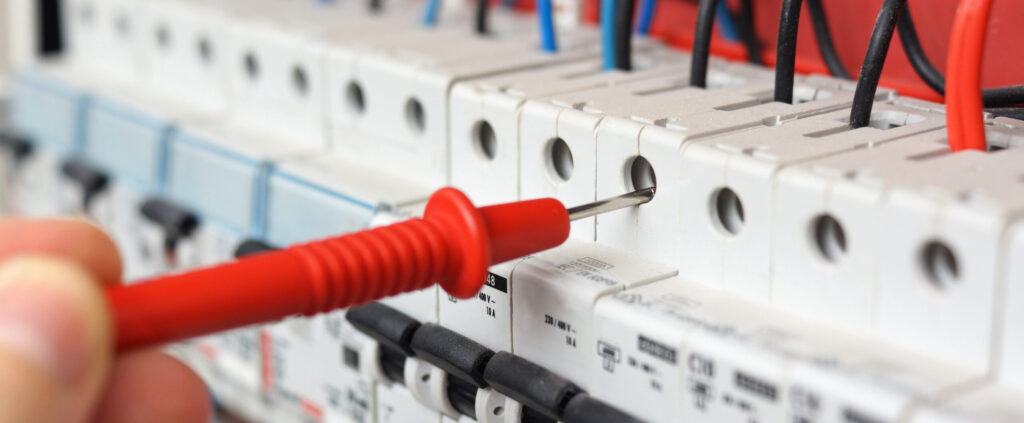
Electrical issues are common when living in your home. Electrical systems can wear down over time and wires can start to malfunction. Even in newer homes, electrical problems can still occur and present danger to residents in the home. Dealing with electrical problems can be stressful especially when you are not knowledgeable about the inner workings of the electrical. Connect Building Services wants to help homeowners know how to remedy electrical problems either as a temporary solution or until electricians can replace the faulty electrical. Here are 6 common residential electrical problems and ways that homeowners can make their homes safe again.
1- Faulty Switches
One of the most common problems in homes is unreliable switches. The lights don’t turn on when you flick the switch, or your dimmers don’t respond when moved. This could be caused by multiple factors including defective parts, mistakes in installation, the age of the home, or moisture damage. Your circuit breaker could also be to blame for the switches not conducting energy to the light bulbs.
How To Improve Switches
Installing a new switch could help solve this problem, but the issue could be more complex than that. Electricians should handle these problems to prevent electrical shocks or further damage to the home. Test other outlets in the room to ensure the circuit breaker is working in that section, and turn it off before working around electrical wires.
2- Loose Outlets
When plugs fall out of your outlets, this is a problem for appliance efficiency or completing daily tasks. Contacts inside the outlet should hold the plug securely in place while using the appliance. Unsecure plugs can ignite nearby dust or wood and cause electrical fires in the home. Fixing these loose outlets will help lower the risk of fires.
Keep Plugs Inside The Outlets

Buying a new outlet with proper contacts to hold in the plugs. Replacing outlets is a common task that homeowners can do on their own without risk of injury. Making sure the outlet’s power is off before replacing it will prevent electrical shock from occurring. New outlets are inexpensive so it is better to replace them quickly rather than put up with the inconvenience of loose plugs.
3- Electrical Surges Or Dips
Frequent power surges are another common residential electrical problem. When your power fades and comes back or turns off briefly and turns back on, this is a power surge. This poses a moderate risk to your home as it can damage appliances or electronics that are connected to your home grid.
Preventing Changes In Electrical Currents
If you notice multiple surges happening in your home, that are not caused by storms or power outages, it is best to call an electrician. Professional electricians will be able to look at your system and determine the root cause of the problem. There may be a faulty device or connection that is causing the issue.
4- Frequent Light Bulb Blowouts
Homeowners who see their light bulbs burn out often could be dealing with bad electrical connections. Overheating often occurs in lightbulbs, which causes them to explode or burn out faster than normal.
Troubleshooting Light Bulb Problems
This could be due to multiple factors, so it can be hard to improve the issue without proper training. Some homeowners use the wrong wattage of light bulbs, which can cause them to blow out quickly. Instead of frequently replacing light bulbs, schedule an inspection with our electricians at Connect.
5- High Electrical Bills
Problems around your home can cause you to use more electricity than necessary. Your higher energy bills could mean your circuits are damaged or you have faulty wires. Any of the problems we have previously mentioned could pull more energy than necessary. A random unexpected spike could be caused by faulty outlets or other electrical problems.

Lowering Your Electrical Usage
Making repairs around your home will lower your energy bills. Here are some ideas to help improve your energy usage.
- Unplug chargers, electronics, or appliances when not in use
- Have yearly electrical inspections
- Change your electrical provider to a cheaper option
- Find out what appliance uses the most electricity
- Limit hot water leaks
- Contact the electrical company to ask about your bill and usage levels
6- Electrical Shocks
Feeling a mild shock when you plug in a device or your appliances isn’t normal. Electrical problems that cause a shock can be dangerous for many reasons.
Fixing Electrical Problems
Faulty wiring is often the cause of electrical shock when using your outlets. Professional electricians will know how to properly rewire your home to prevent small shocks or larger shocks from occurring. Touching these outlets (especially for small children) can cause damage to your nerves or skin or start a fire in the home. Contact an electrician to upgrade faulty wires as soon as possible.

